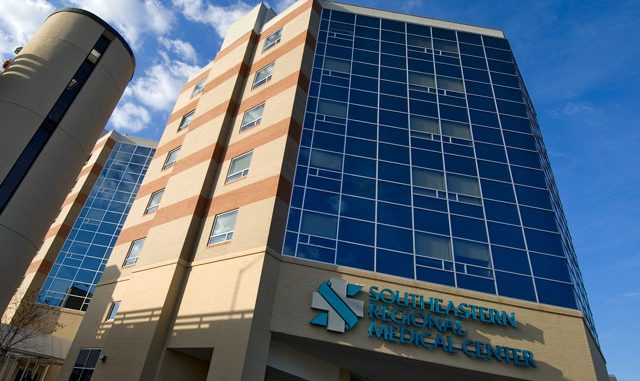
RALEIGH — Southeastern Health (SeHealth) has announced a series of layoffs and closures as a result of the financial impact of COVID-19 and orders related to the virus.
Located in Lumberton, non-profit SeHealth is a comprehensive health care system that includes Southeastern Regional Medical Center which offers a combination of services to more than 15,000 inpatients and 61,000 emergency patients each year. SeHealth also operates WoodHaven Nursing, Alzheimer’s and Rehabilitation Center as well as Southeastern Hospice House and a number of smaller clinics and therapy centers.
In a June 1 press release, four major changes were listed by the organization that includes cutting compensation for senior leaders and a 46% reduction in total compensation for President and CEO Joann Anderson.
“We followed federal and state direction and mandates directing the suspension of non-essential services,” said Anderson. “While these actions were necessary, they have impacted our organization’s financial position in a very real way.”
Anderson said that unplanned expenses from securing additional supplies and PPE “coupled with the significant drop in volumes as a result of suspending non-essential procedures” have left SeHealth in a “serious financial situation.”
“While we’ve taken immediate action to address some of these challenges, it’s become clear we must take additional measures to protect our ability to secure access to safe, high-quality care for the residents of our community both in the short- and long-term,” Anderson said.
Top-level employees will not be the only ones seeing cuts. According to the press release some employee health benefits will be changed and 236 positions, including two vice president positions, will be eliminated. The cuts represent about 22% of administration and 10% of SeHealth’s total workforce.
“About 40% of the positions being eliminated will be realized by not filling vacant positions, attrition, reassigning staff to new roles and retirements. However, these changes will impact the employment of 147 employees,” the release reads.
“This is a difficult day for all of us,” Anderson said. “The loyalty and dedication our people have shown the community we serve is not lost on any of us. We’ve all been challenged and stretched in different ways as we’ve dealt with the personal and professional impacts this virus has had on our lives.”
SeHealth said it also plans to evaluate some departments for potential outsourcing.
Additional actions being taken by SeHealth take aim at improving efficiencies by “reducing the organization’s physical footprint.” That reduction means permanent closure of the Maxton and White Lake clinics and the transfer of their patients to other clinics. The Neurosurgery clinic will also be closing and patients moved elsewhere.
The organization says it will “shift focus” to inpatient behavioral health services. SeHealth will be sending outpatient behavioral health services to other providers in the community as well as consolidating outpatient physical and occupational therapy services.
SeHealth says it did receive funding from the federal and state government through the CARES Act, but that “the reality is the funding covers only a very small portion of operating expenses.”
Hundreds of hospitals across the country have seen layoffs and downsizing since the beginning of the COVID-19 outbreak mainly due to the suspension of elective surgeries and similar services. Those operating changes in services were made in an attempt to reserve bed capacity and supplies for the “surge” of COVID-19 patients which, for the vast majority of states, never materialized. As a result, medical centers, clinics and hospitals have all seen a steep drop in the number of in-patients with matching drops in revenues.
One of the first major sets of furloughs in North Carolina was Cape Fear Valley Health in Fayetteville. Around 300 employees were furloughed on March 27. Cape Fear instituted 350 more employee furloughs in early April due to facility inpatient occupancy diving to 60%.
Harnett Health located in the area of Dunn announced it would furlough 80 staff members in mid-April. Also in April, Wake Forest Baptist Health said they were furloughing administrative and leadership staff for possibly up to two and a half months.
On April 24, Scotland Health Care System in Laurinburg said they would be furloughing almost 70 employees through June 30 due to the steep decline in patient volume and revenue. Vidant Health in Greenville also announced furloughs which began April 26.



